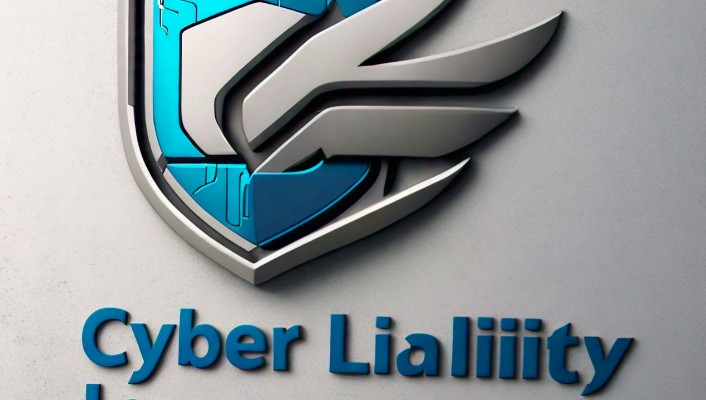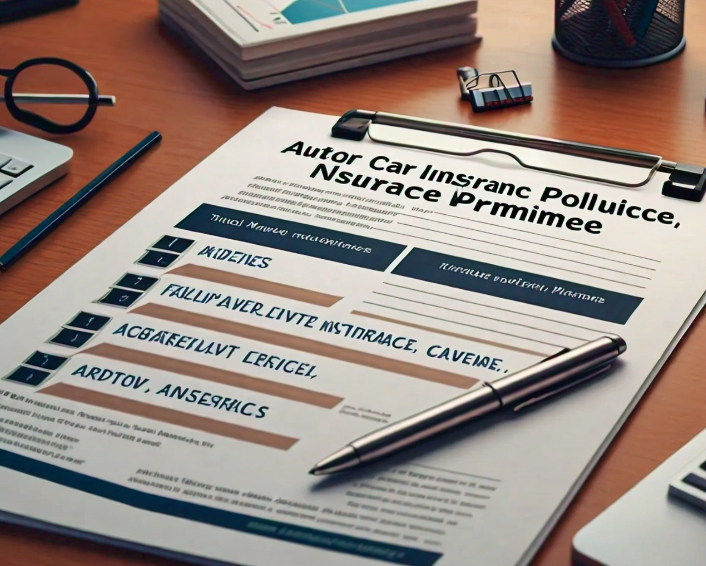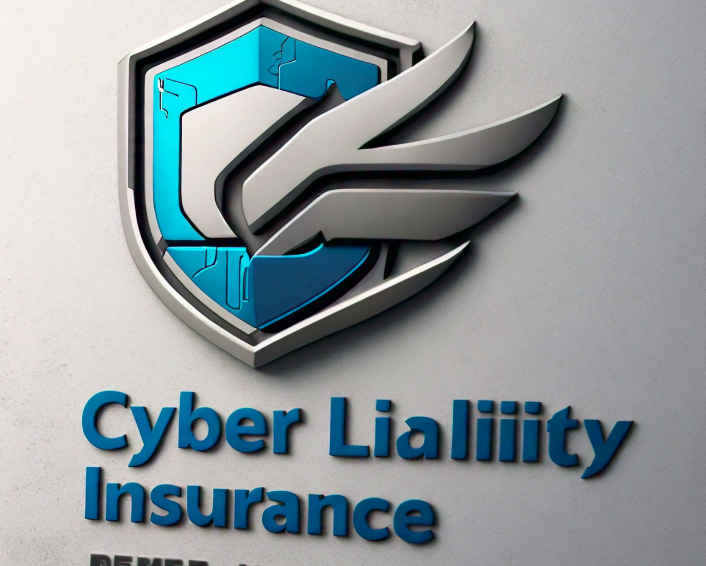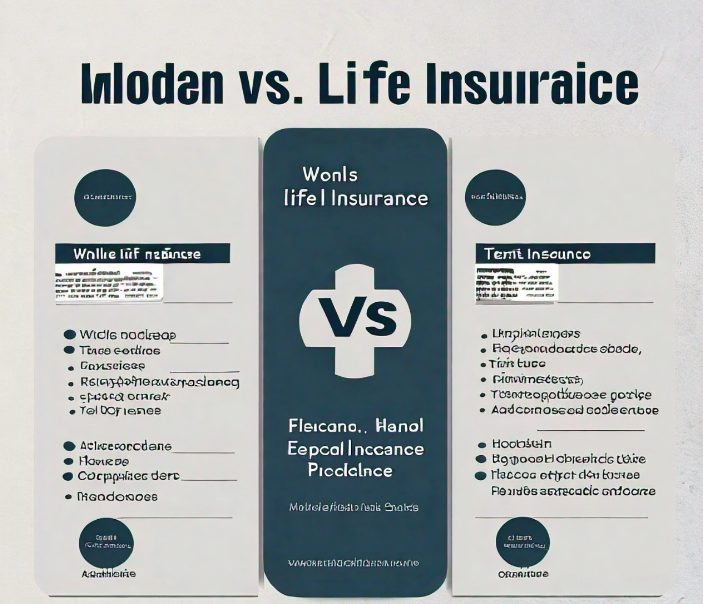Cyber Liability Insurance: Protecting Your Business in a Digital World
In our hyper-connected world, the digital landscape can feel like a double-edged sword. On one side, it opens up a wealth of opportunities; on the other, it poses significant risks—especially for businesses. Enter cyber liability insurance, a vital safeguard that helps protect your business from the fallout of cyber incidents. Let’s dive deep into what this coverage entails, who needs it, and why it’s essential for modern businesses.
What is Cyber Liability Insurance?
Definition and Overview
Cyber liability insurance is a specialized type of insurance designed to protect businesses from financial losses resulting from data breaches and other cyber threats. It encompasses a range of coverage options that can help mitigate the financial impact of cyberattacks, data breaches, and other digital risks. Essentially, it’s like a safety net for your digital operations.
Why It’s Essential for Businesses Today
With the rise of digital technology, businesses are more vulnerable to cyber threats than ever before. Data breaches can lead to devastating financial consequences, damage to your reputation, and loss of customer trust. Cyber liability insurance helps businesses prepare for, respond to, and recover from these incidents, making it a crucial investment for any organization.
Types of Cyber Liability Insurance
When it comes to cyber liability insurance, understanding the different types of coverage available is key to selecting the right policy for your needs.
First-Party Coverage
First-party coverage helps protect your own organization against the financial fallout from a cyber incident.
Data Breach Response
This coverage assists with the costs associated with responding to a data breach, such as notifying affected individuals, credit monitoring services, and public relations efforts to manage the fallout.
Business Interruption
If a cyberattack disrupts your operations, this coverage can compensate for lost income during the downtime. Think of it as your business’s financial lifeline while you recover.
Third-Party Coverage
Third-party coverage protects you against claims made by other parties affected by your cyber incident.
Legal Fees and Settlements
If a customer or partner sues you due to a data breach, this coverage helps cover legal fees, settlements, and judgments. It’s like having a lawyer on speed dial, ready to jump into action when needed.
Regulatory Fines
Cyber liability insurance can also cover the fines imposed by regulatory bodies following a data breach. In today’s regulatory environment, non-compliance can lead to hefty penalties, making this coverage essential.
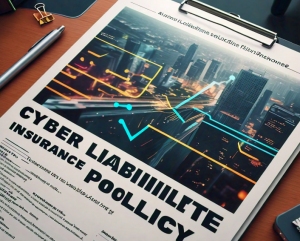
Key Features of Cyber Liability Insurance
Understanding the key features of cyber liability insurance can help you appreciate its value.
Coverage for Data Breaches
This is the bread and butter of cyber liability insurance. It covers the costs associated with a data breach, including notification costs, credit monitoring, and other related expenses.
Cyber Extortion Coverage
If your business falls victim to ransomware, cyber extortion coverage can help. It covers the ransom payment and associated costs to help you regain control of your systems.
Crisis Management and PR Assistance
Reputation management is critical after a cyber incident. Many policies include crisis management assistance to help you handle public relations and restore customer confidence.
Who Needs Cyber Liability Insurance?
Cyber liability insurance isn’t just for tech giants or financial institutions. Here’s a look at who should consider this essential coverage.
Small Businesses
Many small businesses underestimate their risk but are often prime targets for cybercriminals. With limited resources to recover from a cyber incident, having insurance can be a game changer.
Large Corporations
Larger organizations typically handle vast amounts of sensitive data and have more significant exposure. For them, cyber liability insurance is not just an option; it’s a necessity.
Nonprofits and Educational Institutions
Even nonprofits and schools need cyber liability coverage. They often collect sensitive information from donors and students, making them attractive targets for cyberattacks.

How to Choose the Right Cyber Liability Insurance
Choosing the right cyber liability insurance can feel overwhelming, but breaking it down can simplify the process.
Assessing Your Risk Profile
Evaluate your business’s risk factors, including the type of data you handle, your industry, and your level of cybersecurity preparedness. This assessment will help you determine the level of coverage you need.
Understanding Policy Limits
Every policy has limits on how much it will pay out. Ensure that the limits align with your business needs and potential exposure to cyber incidents.
Evaluating Exclusions and Endorsements
Carefully review the exclusions and endorsements in the policy. Understanding what isn’t covered is just as crucial as knowing what is. For instance, some policies might exclude coverage for certain types of data breaches or cyberattacks.
Common Misconceptions About Cyber Liability Insurance
Clearing up common myths can help you make better-informed decisions.
“I’m Too Small to Be Targeted”
Many small business owners believe they are too insignificant to attract cybercriminals. Unfortunately, this couldn’t be further from the truth. Cybercriminals often target smaller businesses precisely because they tend to have weaker security measures.
“My General Liability Policy Covers Cyber Risks”
General liability insurance typically does not cover cyber risks. If you think you’re protected under your general policy, you might be in for a rude awakening if a cyber incident occurs.
Steps to Take After a Cyber Incident
If the unthinkable happens and you experience a cyber incident, here’s what to do next.
Immediate Actions
First and foremost, contain the breach. Disconnect affected systems and assess the situation. Quick action can help minimize damage.
Notifying Your Insurer
Contact your cyber liability insurance provider as soon as possible. They can guide you through the claims process and help you understand your coverage.
Legal and Regulatory Compliance
Ensure that you comply with all legal and regulatory requirements, including notifying affected parties and relevant authorities, if necessary. Failing to do so can lead to additional penalties.

Conclusion
In today’s digital age, cyber liability insurance is more than just an option; it’s a necessity for businesses of all sizes. With the potential for devastating financial repercussions from cyber incidents, having the right coverage can protect your organization and give you peace of mind. By understanding the types of coverage available and how to select the right policy, you can ensure that your business is prepared for the unexpected.
FAQs About Cyber Liability Insurance
What does cyber liability insurance typically cover?
Cyber liability insurance generally covers data breaches, business interruption, legal fees, regulatory fines, and crisis management costs.
How much does cyber liability insurance cost?
Costs can vary based on factors like your business size, industry, and coverage limits. Small businesses might pay a few hundred dollars a year, while larger corporations could spend significantly more.
Can I get cyber liability insurance for my home business?
Yes, many providers offer cyber liability insurance for home-based businesses. Just make sure to assess your specific risks and coverage needs.
How often should I review my cyber liability policy?
It’s wise to review your policy annually or whenever there’s a significant change in your business operations, such as adopting new technologies or handling more sensitive data.
What should I do if I experience a data breach?
First, contain the breach and assess the damage. Then notify your cyber liability insurance provider and follow their guidance for managing the incident.
Common Types of Insura0nce Fraud | ||
Cyber Liability Insurance | ||
Comparing International Travel Insurance | ||
Understanding Liability Coverage | ||
Factors Affecting Auto Insurance Premiums | ||
Whole vs. Term Life Insurance | ||
Affordable Care Act (ACA) Plans | ||
How to Protect Yourself from Fraud | ||
Short-term vs. Long-term Disability Insurance | ||
Importance of Business Interruption Insurance | ||
Common Exclusions in Pet Insurance | ||
Essential Coverage For Small Businesses | ||
Best Travel Insurance Plans | ||
Home Insurance For First-Time Buyers | ||
Comparing Care Insurance Rates | ||
Best Life Insurance Companies | ||
Short-term Health Insurance |
